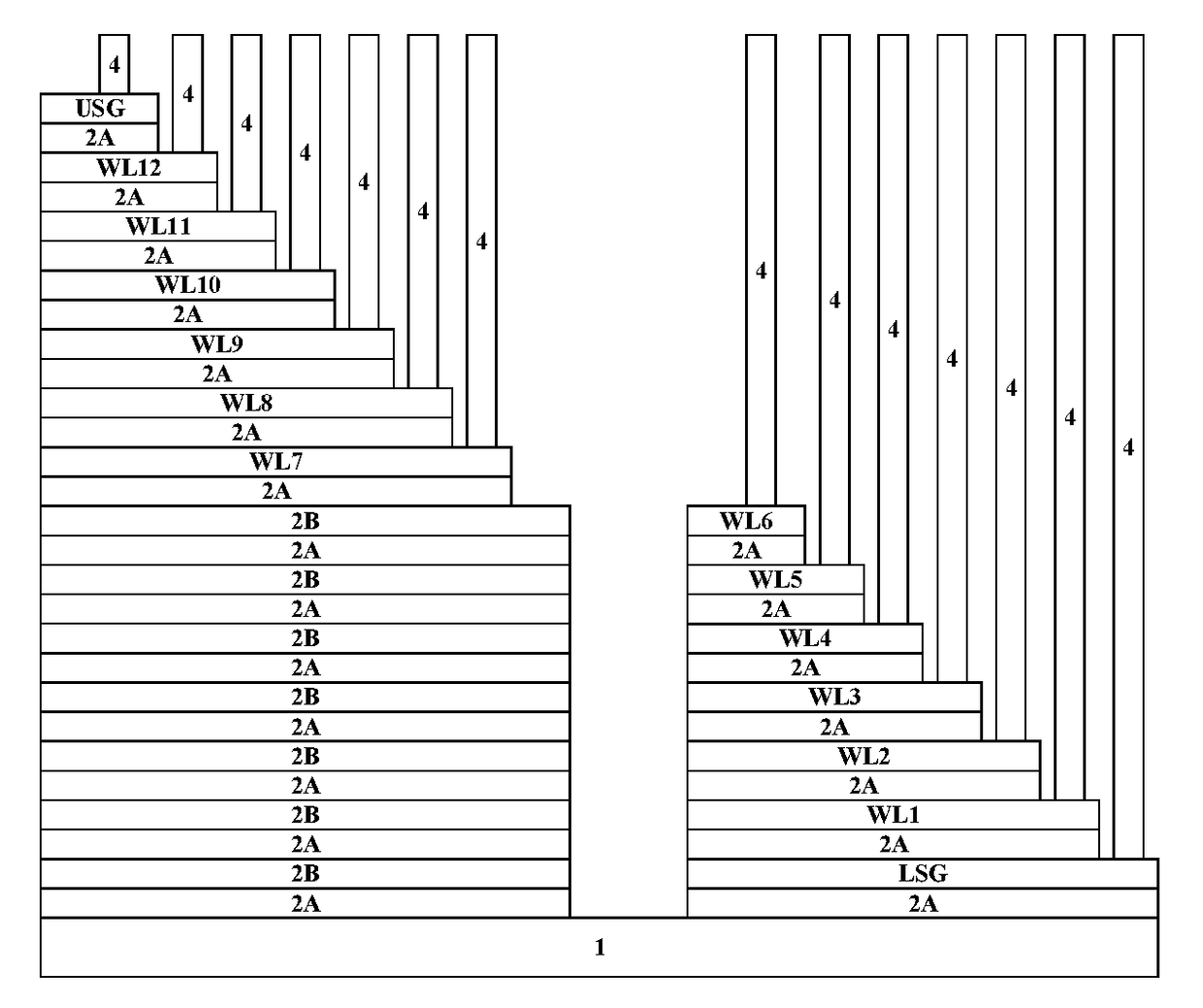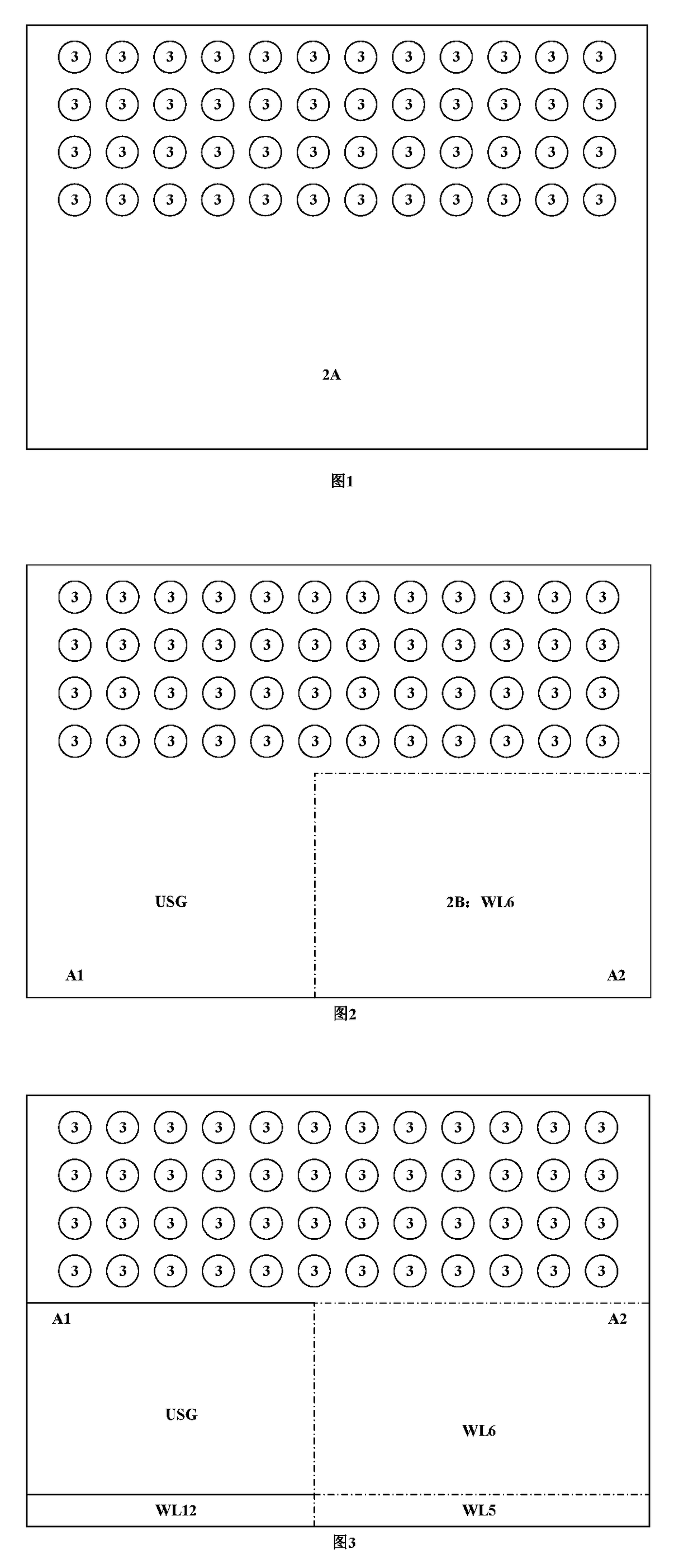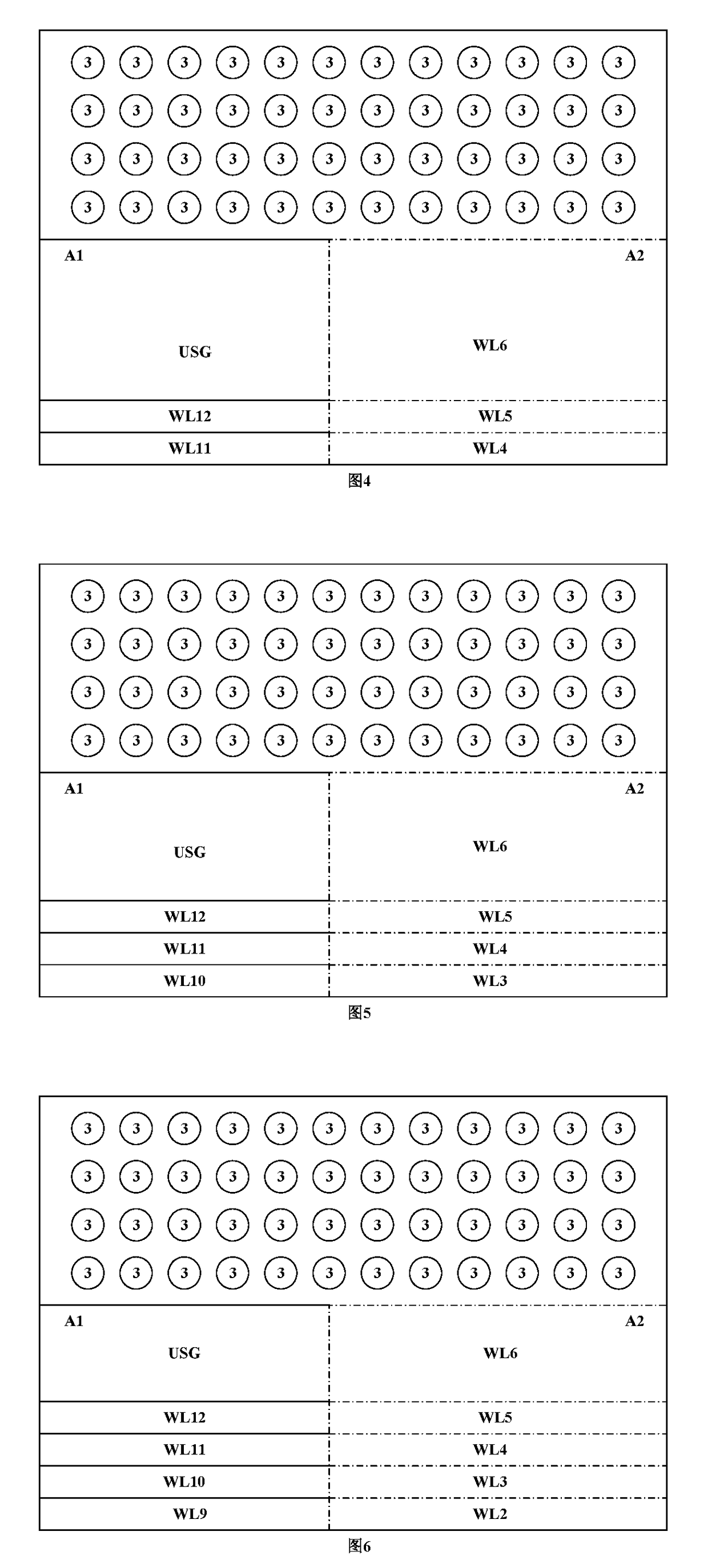Method of manufacturing 3-d semiconductor device
- Summary
- Abstract
- Description
- Claims
- Application Information
AI Technical Summary
Benefits of technology
Problems solved by technology
Method used
Image
Examples
Embodiment Construction
[0031]The features and technical effects of the present invention will be described in detail with reference to the drawings and schematic embodiments, disclosing a method for manufacturing a semiconductor device effectively improving the reliability of the device. It should be noted that the similar reference numbers denote the similar structure. The terms used in the present invention like “first”, “second”, “up / upon”, “down / low / beneath / under” etc. can be used in denoting various device structures, and do not indicate the relationship in space, sequence or hierarchy of the device structures unless specially illuminated these terms, if not stated otherwise.
[0032]As shown in FIG. 1, the device unit is formed on the substrate 1. According to the embodiments shown in figures of the invention, the device units are a plurality of vertical channels 3. In other embodiments of the invention not shown in the figure, the device unit can be memory cells with floating gates made of polycrystal...
PUM
 Login to View More
Login to View More Abstract
Description
Claims
Application Information
 Login to View More
Login to View More - R&D
- Intellectual Property
- Life Sciences
- Materials
- Tech Scout
- Unparalleled Data Quality
- Higher Quality Content
- 60% Fewer Hallucinations
Browse by: Latest US Patents, China's latest patents, Technical Efficacy Thesaurus, Application Domain, Technology Topic, Popular Technical Reports.
© 2025 PatSnap. All rights reserved.Legal|Privacy policy|Modern Slavery Act Transparency Statement|Sitemap|About US| Contact US: help@patsnap.com



